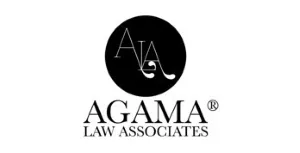- in India
- with readers working within the Retail & Leisure industries
- within International Law, Family and Matrimonial and Employment and HR topic(s)

The Consumer Protection Act, 2019 is an act that aims to provide better protection for consumers and promote their rights. The act was passed by the Indian parliament on August 6, 2019, and it replaced the Consumer Protection Act, 1986.
The new act strengthens consumer rights and provides for the establishment of the Central Consumer Protection Authority ("CCPA") to promote, protect and enforce consumer rights. The act also includes provisions for product liability claims, mediation, e-commerce transactions, and penalties for misleading advertisements and harmful products/services.
In order to curb misleading advertisements and protect consumers from unfair trade practices, the Advertisement Standard Council of India ("ASCI") had previously issued guidelines to protect the consumers, but It could not compel businesses to comply with them. Thus, the CCPA issued guidelines on9 June 20221, ("Guidelines")to regulate misleading advertisements. Businesses will have to mandatorily comply with these Guidelines, failing which will result in punitive action being taken against such offenders. This article is divided into two parts;Part I, which describes the Guidelines in brief andPart II, which discusses the duties of the manufacturer, service provider, advertiser and advertising agency as detailed in the Guidelines.
We have divided this blogpost into 2 parts for easy reading. This first part refers to the guidelines and illustrations of how advertisements may be made 'not misleading'. Thesecond partdescribes the duties of various stakeholders.
PART I
Guidelines - In Brief
The Guidelines apply to all types of advertisements irrespective of their form, format or medium. They apply to all the manufacturers, service providers, or traders whose goods, products, or services are the subject of an advertisement; or to an advertising agency or endorser whose service is availed for the advertisement for such goods, products, or services. This brings both private and public advertisements into its ambit.
The Guidelines apply to advertisements on television, radio, print media, social media, and e-commerce platforms, among others. For example, a mobile phone company promoting a new smartphone on television, a government organization promoting a new policy on social media, or an influencer endorsing a product on their social media account.
Conditions for a valid advertisement: The Guidelines explain what shall constitute a valid and non-misleading advertisement by laying down a list of conditions for the same. They have been stated here as follows:

Conditions for bait advertisements
The term 'bait advertisement' refers to an advertisement that offers goods, products, or services for sale at a low price to attract customers. For example, an advertisement that offers a popular electronic device at an exceptionally low price, but only a limited quantity is available, and the customers may be encouraged to purchase a more expensive model. Such advertisements are now subject to the following conditions:
- it should not encourage consumers to buy goods, products, or services without a reasonable prospect of selling them at the advertised price;
- the advertiser should ensure adequate supply of goods, products, or services to meet the expected demand created by the advertisement;
- the advertisement should mention the reasonable grounds for any anticipated failure to supply the goods, products, or services;
- the advertisement should not mislead consumers by omitting restrictions, such as geographic or age restrictions, on the availability of goods, products, or services; and
- the advertisement should not mislead consumers about market conditions concerning the goods, products, or services or their availability to encourage consumers to purchase such items in less favourable conditions.
Surrogate advertising
The Guidelines provide a definition for surrogate advertisement, which refers to the advertising of goods and services that are otherwise restricted or prohibited from being advertised under Indian law. The Guidelines state that surrogate advertising is not allowed if:
- it directly or indirectly refers to goods or services that are prohibited or restricted from being advertised; or
- it is using the brand name or logo of any goods or services whose advertisement is prohibited or restricted under the law.
However, the Guidelines clarify that the use of a brand name or company name that may be associated with goods or services that are prohibited will not automatically turn an advertisement into a surrogate advertisement if it is otherwise not objectionable.For instance, if a brand that sells alcoholic beverages starts advertising its non-alcoholic beverages using the same brand name and logo, it would be considered a surrogate advertisement since the advertisement is indirectly referring to the alcoholic beverages.
Free claims advertisements
Advertisements that make claims of goods or services being 'free of cost', 'without any charge', or similar terms must not require the consumer to pay anything other than the unavoidable cost of responding to such advertisements and collecting or paying for the delivery of the said goods or services.
An advertiser promoting an IT-based service cannot use the term 'free trial' if the consumer has to provide credit card information and will be charged if they do not cancel the trial before the end of the free trial period. Similarly, an advertisement for a cloud storage solution cannot claim to offer a 'free trial' if the consumer has to pay a non-refundable fee to use the service.
Using the term 'free trial' in such instances is likely to deceive the consumer into believing that the service is completely free when there are hidden costs or conditions involved.
Advertisement targeting children
Advertisements targeted towards children require special attention and responsibility as children are vulnerable and easily influenced. As the availability of the internet and technology becomes more widespread, children are emerging as significant stakeholders in the digital economy. The Guidelines outline specific factors to consider when publishing advertisements for children to avoid harm, manipulation, and exploitation. This topic is discussed in further detail as a separate article on our blog.
Endorsement
The Guidelines state that the endorsement in an advertisement must reflect the genuine and reasonably current opinion of the endorser, must be based on adequate information and should not be deceptive. The Guidelines also prohibit Indian as well as foreign professionals from endorsing such professions that are not permitted or are illegal to be advertised under Indian law.
Disclaimers in Advertisements
The Guidelines outline the requirements for complying with disclaimers in advertisements. A disclaimer may expand, clarify or resolve ambiguities in a claim but must not contradict the material claim or the main message of the advertisement. It must not hide material information that could make the advertisement deceptive or obscure its commercial intent. The language used, font, placement, speed of the voice-over, and legibility of disclaimers should be the same as the claim and visible to everyone viewing it.
For instance, a disclaimer can be added to an advertisement for a hair growth product that claims "90% of customers see visible results within one month," stating that "Individual results may vary and depend on various factors such as age, genetics, and lifestyle." On the other hand, an advertisement for a weight loss pill claiming, "users can lose up to 5 kilos in one week" should include a disclaimer stating that "These results were achieved in combination with a reduced-calorie diet and exercise program" to avoid concealing material information.
Furthermore, adisclaimer cannot rectify a misleading claim, such as an advertisement for a skin cream claiming that "dermatologists recommend this product for all skin types." In such a case, adding a disclaimer in a different font or placing it elsewhere stating that "Individual results may vary and this product may not be suitable for all skin types" will not be acceptable if the original claim was not based on a recommendation by actual dermatologists.
Penalties
The CCPA can impose a penalty of up to INR 10 Lakhs on the person found guilty of violating the Guidelines. For subsequent violations, the penalty can go up to INR 50 Lakhs. The CCPA can also prohibit the endorser of a misleading advertisement from publishing any endorsement for up to 1 year. In case of repeated violations, the prohibition period can be extended up to 3 years.
For Part II click here.
Footnote
1 https://consumeraffairs.nic.in/sites/default/files/file-uploads/latestnews/CCPA%20Notification.pdf
PART II
This blog post is a continuation of Part I for CCPA Guidelines for Misleading Advertisements and Endorsements, 2022. The first part describes the prescriptions of the guidelines and do's and don'ts for advertisers and owners of brands. This second part deals with the duties and obligations of various stakeholders.
Duties of manufacturer, service provider, advertiser, and advertising agency
Here are the guidelines, duties, and requirements applicable to manufacturers, service providers, advertisers, and advertising agencies:
Objective Substantiation
It is the duty of every manufacturer, service provider, advertiser, or advertising agency is to ensure that all descriptions, claims, and comparisons in an advertisement that relate to matters of objectively ascertainable facts shall be capable of substantiation and produce such substantiation if required by the CCPA. This means that any claim made in an advertisement must be true and backed by relevant data. For instance, if an advertisement claims that a product has a certain benefit or feature, the manufacturer must have evidence to back up that claim. This was relevant under the old regime as well. Clear reports were needed to substantiate claims.
Independent Research or Assessment
The advertisement must also indicate the source and date of independent research or assessment in cases where claims in the advertisement are expressly stated to be based on or supported by such research or assessments. For example, if an advertisement claims that a product has been clinically tested, the advertisement must specify the source and date of the clinical testing and number of data subjects.
Use of References
The Guidelines also state that an advertisement cannot use or refer to the name or image of a celebrity or well-known person without their permission. For example, if a skincare product claims that it is used by a famous actress to promote the product, the advertisement must have obtained permission from the actress to use her name or image.
Misleading Claims
Advertisements cannot contain statements or visual presentations that directly, by implication, by omission, by ambiguity, or by exaggeration are likely to mislead consumers about the product advertised, the advertiser, or any other product or advertiser. An advertisement cannot make false or exaggerated claims about the product or service being advertised. For instance, an advertisement cannot claim that a weight loss pill will help you lose 10 kg in one week if it does not have any scientific backing for such a claim.
Framing of advertisements
The advertisement should not be framed as to abusing the trust of consumers or exploiting their lack of experience or knowledge. It should indicate a fixed period of guarantee of the product or a fixed price at which the product is being offered.
Permissible exaggerations: If any advertisements invite the public to take part in lotteries or prize competitions permitted under any law for the time being in force or hold out the prospect of gifts, it shall set out all pertinent material terms and conditions to enable consumers to obtain a true and fair view of their prospects in such activities. An advertisement cannot make false promises or use tactics to mislead consumers into making a purchase. For instance, if an advertisement claims that a product is being offered at a discounted price, it must mention the original price and the discounted price.
Obvious untruths or exaggerations that are intended to amuse or catch the eye of consumers are permissible, provided they are seen as humorous or hyperbolic and not likely to be understood as making literal or misleading claims for the advertised product. For example, an advertisement for a car that claims to be "faster than a rocket" can be considered a permissible exaggeration as it is clearly intended to be humorous and not likely to be taken literally by consumers.
In Sum
The CCPA Guidelines represent a positive development in the effort to curb unfair trade practices and safeguard consumer rights. By clarifying what constitutes a valid advertisement and providing dos and don'ts for manufacturers, service providers, advertisers, and agencies, these Guidelines aim to prevent consumer friendly behaviour. However, there is room for improvement in areas such as surrogate advertising and the standards for endorsers.
The content of this article is intended to provide a general guide to the subject matter. Specialist advice should be sought about your specific circumstances.



